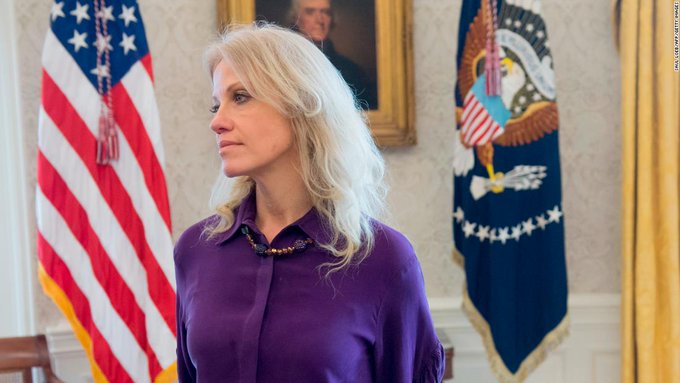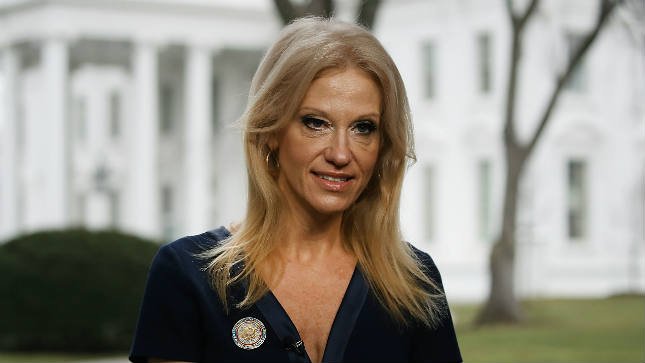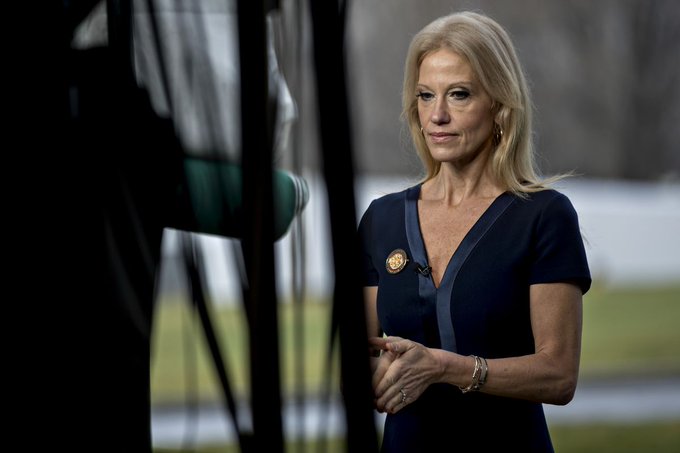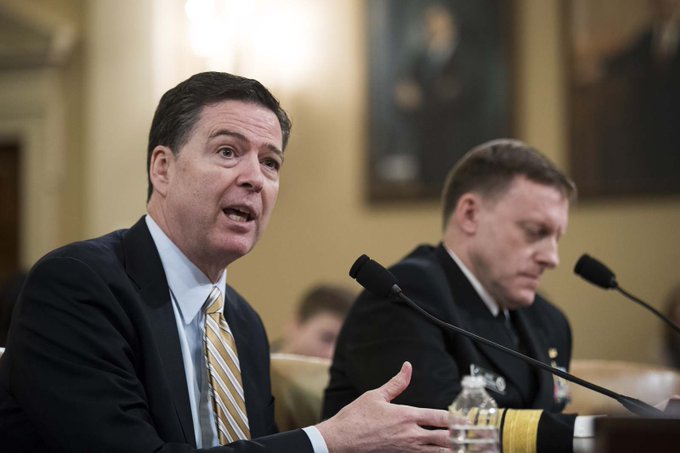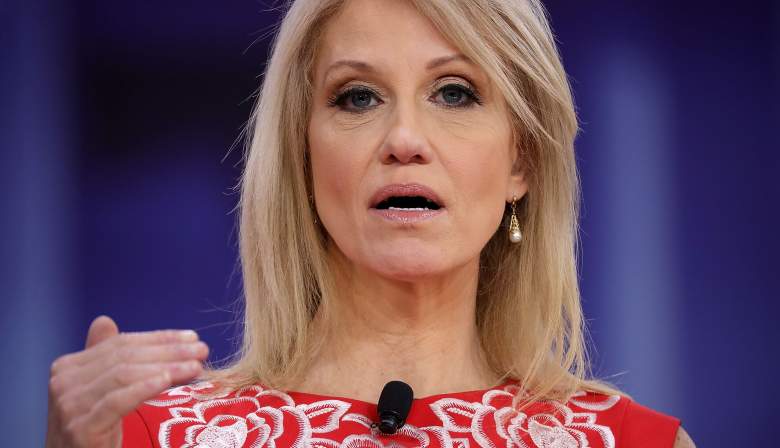
Getty
The Hatch Act is a federal law enacted by Congress in August 1939 and amended in July 1940. The measure is aimed at eliminating corrupt practices in national elections. It was sponsored by Senator Carl Hatch of New Mexico following disclosures that Works Progress Administration officials were using their positions to win votes for the Democratic Party.
The law has been recently thrust back into the spotlight after a new letter to President Trump from the U.S. Office of Special Counsel claimed one of his advisors, Kellyanne Conway, violated the Hatch Act.
The letter states: “Ms. Conway violated the Hatch Act on two occasions by advocating for and against candidates in the December 2017 Alabama special election for United States Senate.”
Here’s what you need to know:
1. The Hatch Act’s Goal Is To Keep Elections Fair
The law forbids intimidation or bribery of voters and restricts political campaign activities by federal employees. The amended version of the law also severely limits contributions by individuals to political campaigns and spending by campaign committees.
2. The Optics of The Hatch Act Have Changed Over Time
According to a 2016 report by the Congressional Research Service: “The Hatch Act was significantly amended in 1993 to relax the broad ban on political activities, and now allows most employees to engage in a wide range of voluntary, partisan political activities in their free time, while away from the federal workplace. Some employees may be subject to additional restrictions depending on the employing agency or an employee’s specific position.”
The report also states: “The nature of the federal workforce and work environment has continued to evolve since these amendments, and new issues have arisen for congressional consideration in recent years. In particular, the increased use of technology has raised questions about how email and mobile communications may be regulated under the Hatch Act. The increased availability and use of smartphones may be seen has blurring an employee’s time, either by using a personal device while working or using a government device while off-duty. Additionally, alternative work arrangements, for example, telework, have presented similar dilemmas in understanding how Hatch Act restrictions might be applied in the modern workplace.”
3. Carl Hatch Was a Democratic Senator From New Mexico
According to his Congressional bio, Hatch was born in Phillip County, Kansas on Nov. 27, 1889 and attended public schools in Kansas and Oklahoma. In 1912, Hatch graduated from the law department of Cumberland University and began practicing law in Oklahoma that year.
In 1917 he became the assistant attorney general of New Mexico. He also worked as a collector of internal revenue from 1919-22 and district judge of the ninth judicial district of New Mexico from 1923-29. From 1930-33 he served as the State board of bar examiners. On Oct. 10, 1933 he was appointed to fill the vacancy of Senator Sam. G. Bratton, who resigned. Hatch was reelected in November of 1934 and again in 1942. He served as a Senator until Jan. 2, 1949.
After leaving the Senate, Hatch was appointed U.S. district judge in New Mexico and served from 1949-63. He died in Albuquerque on Sept. 15, 1963 and was buried at Fairview Park Cemetery.
4. Kellyanne Conway Was Accused of Violating The Hatch Act
In a letter to President Donald Trump, the OSC Special Council Henry Kerner said Conway’s interviews on Nov. 20 and Dec. 6, 2017 were in violation of the Hatch Act in regards to the Alabama special election for U.S. Senate. The letter states “Ms. Conway was aware of the Hatch Act’s prohibitions when she chose during both interviews to repeatedly identify reasons why voters should support one candidate over another in the Alabama special election.”
Kerner’s letter also requests the President consider appropriate disciplinary action on Conway for her violations. White House deputy press secretary Hogan Gidley released a statement which said Conway was simply echoing the President’s position for and not expressing her own thoughts.
“Kellyanne Conway did not advocate for or against the election of any particular cadidate,” said Gidley. “She simply expressed the President’s obvious position that he have people in the House and Senate who support his agenda. In fact, Kellyanne’s statements actually show her intention and desire to comply with the Hatch Act — as she twice declined to respond to the host’s specific invitation to encourage Alabamans to vote for the Republican.”
5. There Have Been Several Other Hatch Act Violations Since President Trump Took Office
On Oct. 30, 2016, U.S. Senate Democratic Minority Leader Harry Reid said FBI Director James Comey may have violated the Hatch Act by sending a letter to the Congress prior to the 2016 election. The letter revealed the FBI was planning on reopening their investigation into Hillary Clinton’s emails.
In June 2017, the Office of Special Counsel issued a warning to White House Director of Social Media Dan Scavino Jr. for an April 2017 tweet that Scavino sent. The tweet advocated for a primary challenger to go up against against U.S. Representative Justin Amash.
In Oct. 2017, the Office of Special Counsel issued a warning to U.S. Ambassador to the United Nations Nikki Haley for a June 2017 tweet that Haley retweeted from President Donald Trump. The tweet endorsed Republican Congressional candidate Ralph Norman.
